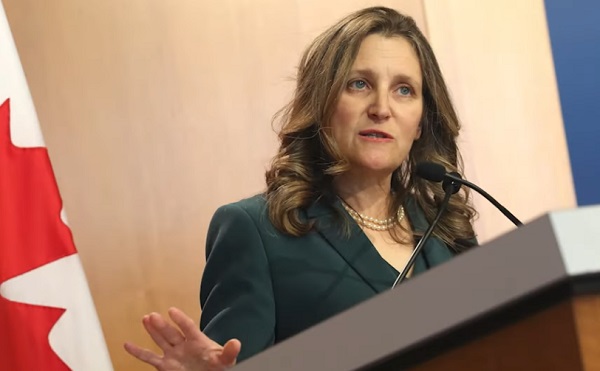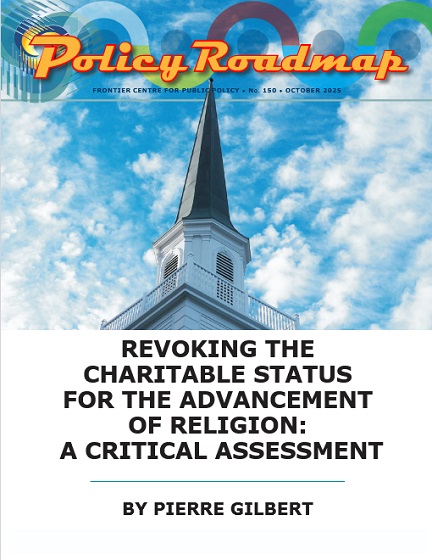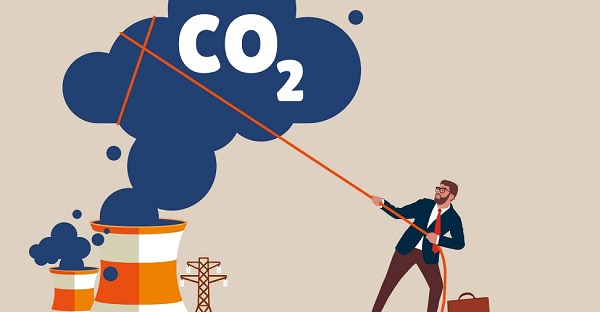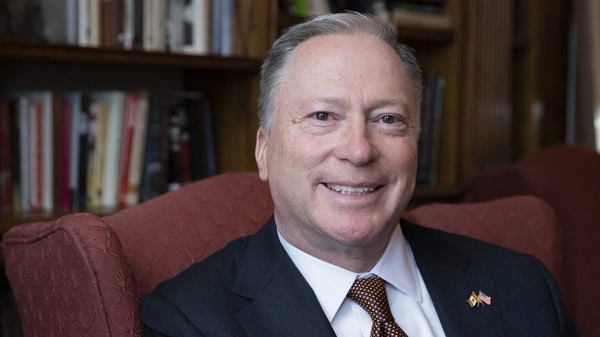National
Chrystia Freeland apparently was told last Friday via Zoom call that Canada’s prime minister had lost confidence in her and she was being replaced by Mark Carney

From LifeSiteNews
Former finance minister learned of Trudeau’s decision to replace her before she quit: report
Prime Minister Justin Trudeau was planning to replace now-former Minister of Finance Chrystia Freeland with globalist-linked former central banker Mark Carney, according to insiders.
At least two inside sources, as reported by the Globe and Mail, said Freeland, who quit as finance minister Monday, learned on a Zoom call last Friday from Trudeau that Carney, the former Bank of Canada and Bank of England governor, would take over her job.
The sources noted that Trudeau told Freeland he had lost confidence in her and the job was going to Carney. She was to be offered another role but considered it a demotion. However, Carney did not accept the job offer from Trudeau after Freeland resigned Monday, sources indicated.
According to the sources who remain confidential, it is not clear whether Carney had accepted a job offer to join the Trudeau government. However, sources close to the former head banker said he did not want to be a part of the government.
The move to replace Freeland with an unelected MP such as Carney would have been highly unusual.
Freeland on Monday sent shockwaves through Canada’s political circles after she announced her resignation from the Liberal cabinet, revealing that she did so after Trudeau asked her to step down as finance minister and move into a different position.
Her public resignation letter blasted Trudeau’s economic direction and apparent lack of willingness to work as a team player with the nation’s premiers.
Calls for Trudeau to resign intensified after Freeland stepped down.
The most recent polls show a Conservative government under its leader Pierre Poilievre would win a super majority were an election held today.
As for Carney, as reported by LifeSiteNews, in October, rumors began to swirl that Carney had again hinted he was planning on diving into Canadian politics amid demands that Trudeau step down as PM.
Carney has close ties in working with the World Economic Forum (WEF) on many files. He also supports globalist-backed energy regulations such as Canada’s punitive carbon tax.
As noted by LifeSiteNews, Carney may be even more extreme than Trudeau on the carbon tax after he rebuked the prime minister for exempting home heating oil from the carbon tax in some provinces.
Carney works for Brookfield Asset Management and the United Nations special envoy on climate action.
Critics say the World Economic Forum is behind the socialist “Great Reset” agenda of which Trudeau and some of his cabinet, including Freeland, are involved.
Freeland’s resignation not only sent shockwaves through Ottawa’s political circles but drew the attention of U.S. President-elect Donald Trump. Earlier this week, he did not hold back in celebrating her departure, saying the “toxic” second-in-command will “not be missed.”
Business
Major Projects Office Another Case Of Liberal Political Theatre

From the Frontier Centre for Public Policy
By Lee Harding
Ottawa’s Major Projects Office is a fix for a mess the Liberals created—where approval now hinges on politics, not merit.
They are repeating their same old tricks, dressing up political favouritism as progress instead of cutting barriers for everyone
On Sept. 11, the Prime Minister’s Office announced five projects being examined by its Major Projects Office, all with the potential to be fast-tracked for approval and to get financial help. However, no one should get too excited. This is only a bad effort at fixing what government wrecked.
During the Trudeau years, and since, the Liberals have created a regulatory environment so daunting that companies need a trump card to get anything done. That’s why the Major Projects Office (MPO) exists.
“The MPO will work to fast-track nation-building projects by streamlining regulatory assessment and approvals and helping to structure financing, in close partnership with provinces, territories, Indigenous Peoples and private investors,” explains a government press release.
Canadians must not be fooled. A better solution would be to create a regulatory and tax environment where these projects can meet market demand through private investment. We don’t have that in Canada, which is why money has fled the country and our GDP growth per capita is near zero.
Instead of this less politicized and more even-handed approach, the Liberals have found a way to make their cabinet the only gatekeepers able to usher someone past the impossible process they created. Then, having done so, they can brag about what “they” got done.
The Fraser Institute has called out this system for its potential to incentivize bribes and kickbacks. The Liberals have such a track record of handing out projects and even judicial positions to their friends that such scenarios become easier to believe. Innumerable business groups will be kissing up to the Liberals just to get anything major done.
The government has created the need for more of itself, and it is following up in every way it can. Already, the federal government has set up offices across Canada for people to apply for such projects. Really? Anyone with enough dollars to pursue a major project can fly to Ottawa to make their pitch.
No, this is as much about the show as it is about results—and probably much more. It is all too reminiscent of another big-sounding, mostly ineffective program the Liberal government rolled out in 2017. They announced a $950-million Innovation Superclusters Initiative “designed to help strengthen Canada’s most promising clusters … while positioning Canadian firms for global leadership.”
That program allowed any company in the world to participate, with winners getting matching dollars from taxpayers for their proposals. (But all for the good of Canada, we were told.) More than 50 applications were made for these sweepstakes, which included more than 1,000 businesses and 350 other participants. In Trudeau Liberal fashion, every applicant had to articulate how their proposal would increase female jobs and leadership and encourage diversity in the long term.
The entire process was like one big Dragon’s Den series. The Liberals trotted out a list of contestants full of nice-sounding possibilities, with maximum hype and minimal reality. Late in the process, Minister of Innovation, Science and Industry Navdeep Bains picked the nine finalists himself (all based in cities with a Liberal MP), from which five would be chosen.
The alleged premise was to leverage local and regional commercial clusters, but that soon proved ridiculous. The “Clean, Low-energy, Effective and Remediated Supercluster” purported to power clean growth in mining in Ontario, Quebec and Vancouver. Not to be outdone, the “Mobility Systems and Technologies for the 21st Century Supercluster” included all three of these locations, plus Atlantic Canada. They were only clustered by their tendency to vote Liberal.
Today, the MPO repeats this virtue-signalling, politicking, drawn-out, tax-dollar-spending drama. The Red Chris Mine expansion in northwest British Columbia is one of the proposals under consideration. It would be done in conjunction with the Indigenous Tahltan Nation and is supposed to reduce greenhouse gas emissions by 70 per cent. That’s right up the Liberal alley.
Meanwhile, the project is somehow part of a proposed Northwest Critical Conservation Corridor that would cordon off an area the size of Greece from development. Is this economic growth or economic prohibition? This approach is more like the United Nations’ Agenda 2030 than it is nation-building. And it is more like the World Economic Forum’s “stakeholder capitalism” approach than it is free enterprise.
At least there are two gems among the five proposals. One is to expand capacity at the Port of Montreal, and another is to expand the Canada LNG facility in Kitimat, B.C. Both have a market case and clear economic benefits.
Even here, Canadians must ask themselves, why must the government use a bulldozer to get past the red tape it created? Why not cut the tape for everyone? The Liberals deserve little credit for knocking down a door they barred themselves.
Lee Harding is a research fellow for the Frontier Centre for Public Policy.
Addictions
BC premier admits decriminalizing drugs was ‘not the right policy’

From LifeSiteNews
Premier David Eby acknowledged that British Columbia’s liberal policy on hard drugs ‘became was a permissive structure that … resulted in really unhappy consequences.’
The Premier of Canada’s most drug-permissive province admitted that allowing the decriminalization of hard drugs in British Columbia via a federal pilot program was a mistake.
Speaking at a luncheon organized by the Urban Development Institute last week in Vancouver, British Columbia, Premier David Eby said, “I was wrong … it was not the right policy.”
Eby said that allowing hard drug users not to be fined for possession was “not the right policy.
“What it became was a permissive structure that … resulted in really unhappy consequences,” he noted, as captured by Western Standard’s Jarryd Jäger.
LifeSiteNews reported that the British Columbia government decided to stop a so-called “safe supply” free drug program in light of a report revealing many of the hard drugs distributed via pharmacies were resold on the black market.
Last year, the Liberal government was forced to end a three-year drug decriminalizing experiment, the brainchild of former Prime Minister Justin Trudeau’s government, in British Columbia that allowed people to have small amounts of cocaine and other hard drugs. However, public complaints about social disorder went through the roof during the experiment.
This is not the first time that Eby has admitted he was wrong.
Trudeau’s loose drug initiatives were deemed such a disaster in British Columbia that Eby’s government asked Trudeau to re-criminalize narcotic use in public spaces, a request that was granted.
Records show that the Liberal government has spent approximately $820 million from 2017 to 2022 on its Canadian Drugs and Substances Strategy. However, even Canada’s own Department of Health in a 2023 report admitted that the Liberals’ drug program only had “minimal” results.
Official figures show that overdoses went up during the decriminalization trial, with 3,313 deaths over 15 months, compared with 2,843 in the same time frame before drugs were temporarily legalized.
-

 Energy2 days ago
Energy2 days agoIndigenous Communities Support Pipelines, Why No One Talks About That
-

 Alberta2 days ago
Alberta2 days agoOil Sands are the Costco of world energy – dependable and you know exactly where to find it
-

 Business2 days ago
Business2 days agoFinance Committee Recommendation To Revoke Charitable Status For Religion Short Sighted And Destructive
-

 Alberta2 days ago
Alberta2 days agoThe Technical Pitfalls and Political Perils of “Decarbonized” Oil
-

 International2 days ago
International2 days agoNumber of young people identifying as ‘transgender’ declines sharply: report
-

 National21 hours ago
National21 hours agoDemocracy Watch Renews Push for Independent Prosecutor in SNC-Lavalin Case
-

 Health2 days ago
Health2 days agoColorado gave over 500 people assisted suicide drugs solely for eating disorders in 2024
-

 Alberta1 day ago
Alberta1 day agoEnbridge CEO says ‘there’s a good reason’ for Alberta to champion new oil pipeline






